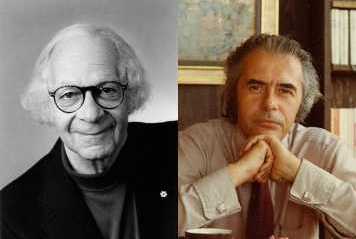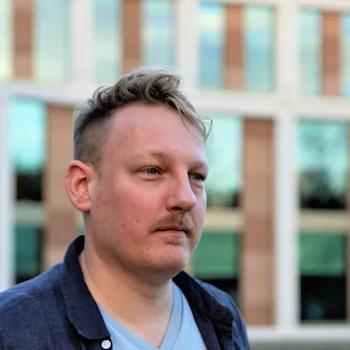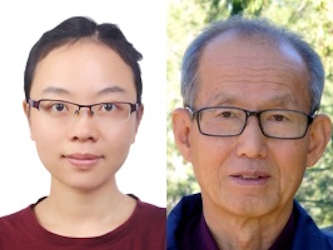The Meisel-Laponce Award was created by the International Political Science Review (IPSR) to honour John Meisel and Jean Laponce, the first two editors of IPSR.
The prize is awarded at every World Congress of Political Science to the best article published in IPSR in the previous two years. The first award was given at the 2012 IPSA World Congress. The next award will be granted at the 2027 IPSA World Congress.
 John Meisel
John Meisel
Of Czech origin, John Meisel is the Sir Edward Peacock Professor of Political Science Emeritus at Queen’s University. He is a Companion of the Order of Canada, a former President of the Royal Society of Canada and a one-time Chair of the Canadian Radio and Telecommunication Commission of Canada. Except for Visiting Professorships at Yale and in the UK, he spent his whole academic life at Queen’s where he pioneered studies of elections and political parties, the role of government in the arts, the politics of regulation and challenges to national cohesion. He was the founding editor of The Canadian Journal of Political Science and of The International Political Science Review. Teaching, research, writing and nature have been his passions and he finds it hard not to get involved in issues affecting the commonwealth. He can be reached at meiselj@queensu.ca.
Jean Laponce
Born in Decize sur Loire, Jean Laponce studied at the Institut d’Études Politiques de Paris and at the University of California, Los Angeles. He taught at the University of British Columbia where he was an Emeritus Professor. He also taught at the University of Ottawa and at the University Aiki Shukutoku in Nagoya. Member of the IPSA Executive Committee from 1966 to 1972, he was President from 1973 to 1976. He joined John Meisel to co-edit the journal IPSR in 1985. He is the author of The Protection of Minorities, 1961; The Government of France under the Fifth Republic, 1962, People vs Politics, 1970; Left and Right, 1981; Languages and Their Territories, 1984; Loi de Babel et autres régularités des rapports entre langue et politique, 2006; Le Référendum de Souveraineté, 2010. He established, with Jean Gottmann, the IPSA Research Committee 15 - Political and Cultural Geography. He also created the IPSA Research Committee 50 - Language and Politics.
Amount: $500 USD and travel expenses up to $1,500 USD.
The award of $500 USD and travel expenses up to $1,500 USD is sponsored by the International Political Science Association.
Nomination Procedures
The editors nominate what is in their opinion the six best papers published in IPSR since the previous IPSA World Congress. With the help of IPSR's Editorial Board, the editors will select the best article.
IPSR’s homepage (http://ips.sagepub.com/) provides a link to the articles nominated for the Award and SAGE provides open access to the articles.
The recipient(s) of the Award is announced in an issue of IPSR and the award is given at a reception hosted by IPSA and IPSR at every IPSA World Congress of Political Science.
Meisel-Laponce Award Recipients
2025
 Hilde Coffé & Marion Reiser, How perceptions and information about women’s descriptive representation affect support for positive action measures. International Political Science Review, 44:2 (March 2023), p.139-156.
Hilde Coffé & Marion Reiser, How perceptions and information about women’s descriptive representation affect support for positive action measures. International Political Science Review, 44:2 (March 2023), p.139-156.
Hilde Coffé is Professor in Politics at the University of Bath. Her main research interests include political behaviour, public opinion, political representation and gender and politics. She has been a visiting scholar at several institutions, including the University of California (Berkeley and Irvine), the University of Sydney, Åbo Akademi University, Helsinki University, SciencesPo Paris, the Spanish Scientific Research Institute, Ghent University and the Weizenbaum Institut (Berlin).
Marion Reiser is Professor of Political Science at the University of Jena, Germany. She holds a PhD from the University of Goettingen (2005) and a Habilitation (2014) from the University of Frankfurt. Her main research interests include political representation, political parties, public opinion as well as subnational politics.
2023
 Niels Spierings, Democratic Disillusionment? Desire for Democracy after the Arab Uprisings. International Political Science Review, 41:4 (September 2020), p.522-537.
Niels Spierings, Democratic Disillusionment? Desire for Democracy after the Arab Uprisings. International Political Science Review, 41:4 (September 2020), p.522-537.
Dr. Niels Spierings is Associate Professor in Sociology at Radboud University (Nijmegen, The Netherlands). His work focuses on processes of inclusion and exclusion, covering multiple domains, regions in the world and societal hierarchies.
Among his strengths, is the building of bridges between methods, disciplines and theories. Questions on gender, sexuality, religion and ethnicity in democratic and social politics have been the subject of his particular attention.
He has extensively studied public opinion on gender relations, tolerance and democracy in the Middle East and North Africa, as well as among Muslim people in Western Europe. In this work he often transcends simplistic debates on culture versus rationality or Islam versus Western culture. On these and other themes, he has published multiple monographs with Palgrave and in a wide range of journals. He is also deeply engaged in policy advice and public engagement.
2020 - video presentation
 Kim Strandberg, Staffan Himmelroos and Kimmo Grönlund, Do discussions in like-minded groups necessarily lead to more extreme opinions? Deliberative democracy and group polarization’, International Political Science Review, 40:1 (January 2019).
Kim Strandberg, Staffan Himmelroos and Kimmo Grönlund, Do discussions in like-minded groups necessarily lead to more extreme opinions? Deliberative democracy and group polarization’, International Political Science Review, 40:1 (January 2019).
- Kim Strandberg is Academy of Finland Research Fellow and Professor of Political Science at Åbo Akademi University.
- Staffan Himmelroos is a researcher in Political Science at the University of Helsinki
- Kimmo Grönlund is Professor of Political Science and Director of Research of the Social Science Research Institute at Åbo Akademi University. He is the Director of the Finnish National Election Study and Convenor (together with André Bächtiger) of the ECPR Standing Group on Democratic Innovations. His team has conducted five population-based experiments in citizen deliberation.
2015 - video presentation
 Lingling Qi and Doh Chull Shin, "How mass political attitudes affect democratization: Exploring the facilitating role critical democrats play in the process", International Political Science Review/Revue internationale de science politique, 32:3 (June 2011), p. 245-262.
Lingling Qi and Doh Chull Shin, "How mass political attitudes affect democratization: Exploring the facilitating role critical democrats play in the process", International Political Science Review/Revue internationale de science politique, 32:3 (June 2011), p. 245-262.
Lingling Qi holds a Ph.D. in Political Science from the University of Missouri-Columbia (2010), and is currently associate professor at the School of Government, Nanjing University, China. She studies comparative politics and international relations, mainly focusing on democracy and democratization, using quantitative methods to analyze civic culture and political institutions.
Doh Chull Shin is Jack W. Peltason Scholar in Residence at the Center for the Study of Democracy at the University of California, Irvine. His books include Confucianism and Democratization in East Asia (2012) Mass Politics and Culture in Democratizing Korea (2000) and the co-edited How East Asians View Democracy (2008). His articles comparing the dynamics and patterns of cultural and institutional democratization have been published in leading political science journals. Shin has held visiting appointments at the Australian National University, Central European University in Budapest, Charles University in Prague, Seoul National University, the University of Cape Town, and the Wissenschaftszentrum Berlin. His current research seeks to assess the authenticity of avowed support for democracy among contemporary global citizenries, and to unravel the transformation of political culture in authoritarian and postauthoritarian societies.
Runner up
Anthony and Heather Smith, "Human Trafficking: The Unintended Effects of United Nations Intervention", International Political Science Review/Revue internationale de science politique, 32:2 (March 2011), p. 125-145.
2011 - video presentation
 Jørgen Møller and Svend-Erik Skaaning, “Beyond the Radial Delusion: Conceptualizing and Measuring Democracy and Non-democracy”, International Political Science Review, 31:3 (2010).
Jørgen Møller and Svend-Erik Skaaning, “Beyond the Radial Delusion: Conceptualizing and Measuring Democracy and Non-democracy”, International Political Science Review, 31:3 (2010).
Jørgen Møller holds a PhD from the European University Institute in Florence, Italy (2007), and he is currently Associate Professor at the Department of Political Science, Aarhus University, Denmark. His research interests include conceptualization of democracy, post-communist political change, comparative historical analysis of democratization and state formation, and qualitative methodology.
Svend-Erik Skaaning holds a PhD from the Department of Political Science at Aarhus University (2007), where he is currently associate professor. His research interests include the conceptualization and measurement of democracy, civil liberties, and the rule of law, political regime change, state capacity, and comparative methodology.











